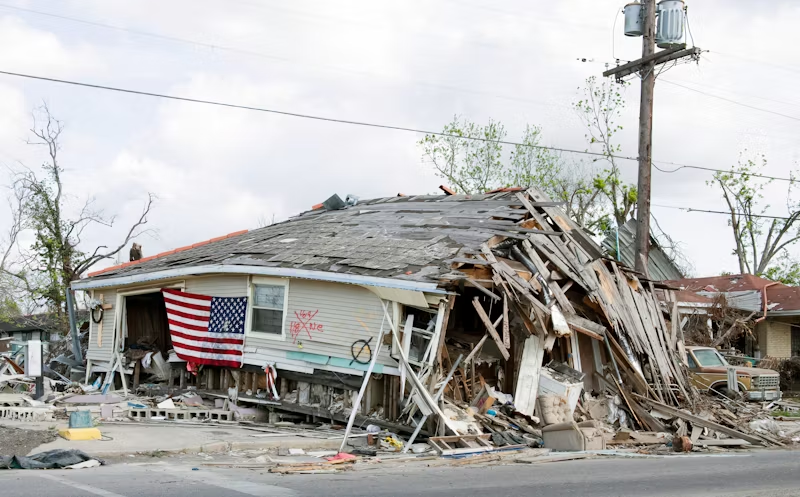
Hurricanes are some of the most devastating natural disasters, leaving in their wake a profound sense of loss. Whether it’s the loss of loved ones, homes, livelihoods, or a familiar way of life, the emotional toll can be overwhelming. Coping with such devastation is an ongoing journey, often marked by emotional highs and lows. However, it’s possible to find strength and resilience, even in the face of unimaginable loss. This article explores ways to cope and move forward after a hurricane.
1. Acknowledge the Grief
The first step in coping with loss is acknowledging and accepting the grief that accompanies it. After a hurricane, feelings of disbelief, sadness, anger, and even guilt are normal. Whether mourning the loss of a loved one, a home, or cherished belongings, it is essential to give yourself permission to grieve. Suppressing these emotions can lead to long-term emotional harm, so allow yourself to feel what you’re feeling without judgment.
2. Seek Support
No one should have to cope with loss alone. After a hurricane, communities often come together to support one another. Reach out to friends, neighbors, family, or support groups. Whether it’s sharing stories, helping with recovery efforts, or just having someone to talk to, this support can provide emotional and practical relief. If you find it difficult to talk about your feelings, consider seeking help from a therapist or counselor trained in trauma recovery.
3. Focus on Basic Needs First
In the immediate aftermath of a hurricane, it’s important to prioritize basic needs: safety, food, water, and shelter. Taking care of these fundamental needs helps reduce feelings of helplessness and sets the stage for emotional recovery. Local and national organizations, such as the Red Cross or FEMA, often provide resources and aid to those affected. Accepting help can feel like a loss of independence, but remember that resilience often begins with ensuring your most immediate needs are met.
4. Allow Time for Healing
Recovering from a hurricane, both emotionally and physically, is a marathon, not a sprint. Understand that the healing process will take time. In the days, weeks, and months following the storm, you may continue to feel waves of grief. Healing doesn’t happen on a set timeline, and it’s essential to be patient with yourself and your loved ones as you navigate the recovery process. Take each day as it comes, and avoid placing unrealistic expectations on your emotional or physical recovery.
5. Create New Routines
A hurricane often disrupts normal life, leaving behind not only physical damage but also emotional upheaval. Establishing new routines can help restore a sense of normalcy. Even small, daily habits—like going for a walk, preparing a meal, or reconnecting with work or hobbies—can create a framework for healing. While it might be challenging to resume or create routines in the midst of chaos, doing so provides a grounding force amid uncertainty.
6. Find Meaning in the Experience
While it can feel impossible to find meaning in loss, doing so can be a crucial step in coping. Whether it’s participating in rebuilding efforts, helping others who are also struggling, or reflecting on the resilience you’ve shown in the face of adversity, finding purpose in the aftermath can promote healing. Many who have lived through such events report finding strength they never knew they had, which in turn provides a sense of empowerment and hope.
7. Take Care of Your Mental Health
Hurricanes not only bring physical devastation but can also trigger or worsen mental health conditions such as anxiety, depression, and PTSD. If you find yourself struggling with feelings of hopelessness, intrusive thoughts, or an inability to function as you normally would, seek professional help. Mental health care providers can offer therapeutic techniques to help manage trauma, such as cognitive-behavioral therapy (CBT), mindfulness practices, or medication if needed.
8. Connect with Nature
After a hurricane, nature can feel both destructive and fragile. However, reconnecting with nature in a safe and meaningful way—whether it’s by spending time outdoors, gardening, or visiting areas that bring peace—can be incredibly healing. Nature has a restorative power, and connecting with it can remind you of the cycles of renewal and growth, even after destruction.
9. Honor What You’ve Lost
Whether it’s the loss of a loved one, a home, or a way of life, honoring those losses can be an important part of the grieving process. You might create a memory book, hold a small remembrance ceremony, or simply dedicate a quiet moment of reflection to honor what was lost. Acknowledging what’s gone, while painful, allows for closure and helps open the door to new beginnings.
10. Look Toward Rebuilding
As time passes, there will come a point when you can begin to focus on rebuilding—whether it’s reconstructing your home, your livelihood, or your emotional well-being. Rebuilding may take months or even years, but focusing on the small steps can help break down what feels like an insurmountable task. Accepting that things will be different, but that you can create a new normal, is a key part of recovery.
Moving Forward with Strength
Coping with loss after a hurricane is a deeply personal journey, but it’s also one that many have walked before. While the road to recovery can be long, it’s possible to find strength, hope, and even renewal amidst the rubble. By acknowledging grief, seeking support, and allowing time for healing, those affected can rebuild their lives—stronger and more resilient than before. Remember, even in the darkest times, the human spirit has an incredible capacity for recovery.
